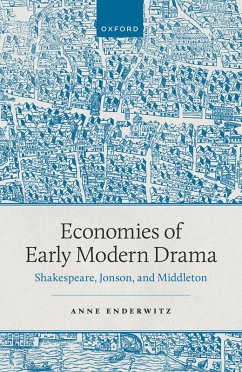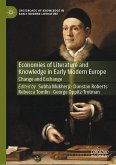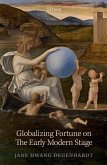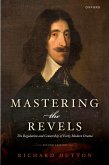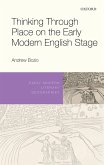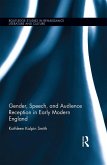This book provides new insights into how theatre responded to changing economic practices and structures. It reviews discourses on household management and commerce to create a rich context for the discussion of socio-economic actions and transactions in Macbeth, Othello, and Timon of Athens, as well as in city comedies by Ben Jonson and Thomas Middleton. By approaching discourses on economy and commerce as complementary, the book opens up a diverse field of socio-economic practices, including the gendered division of duties in the household, new modes of valuation, and evolving credit instruments. Theatre provides unique access to this field. In contrast to practical and policy-oriented discourses, it addresses socio-economic change and its vicissitudes in a spirit of experimentation, testing the ethical limits of socio-economic action and accustoming audiences to the demands of a changing socio-economic reality. Theatre thus offers a vital contribution to the prehistory of political economy. On the London stages, self-interest emerges as a key motive of socio-economic action, and theatre playfully explores its ambiguous status as a partly rational and partly excessive force that has a new ordering function but also creates social conflict. At the same time, by staging the contradictory demands of ethics and efficiency in economic decision-making, early modern plays offer access to a changing understanding of prudence that has a Machiavellian touch: by aligning with the pursuit of private interest, prudence sheds some of its ethical content and becomes foremost an instrumental faculty.
Dieser Download kann aus rechtlichen Gründen nur mit Rechnungsadresse in A, B, BG, CY, CZ, D, DK, EW, E, FIN, F, GR, HR, H, IRL, I, LT, L, LR, M, NL, PL, P, R, S, SLO, SK ausgeliefert werden.

